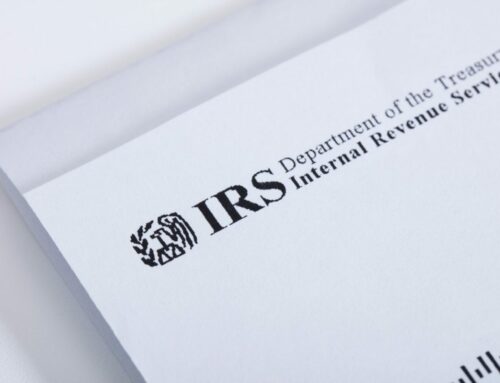While taxes are something you deal with every year, they can still fall to the wayside. Either that, or events beyond your control can cause your tax bill to skyrocket out of your financial hands. Either way, you may need tax debt relief help from us here at Anthem. First, let’s break down just what tax debt relief is.
Essentially, tax debt relief is incentives and programs designed by the IRS to lower a taxpayer or business owner’s tax bill. Examples include tax credits and other temporary incentives, allowable deductions for pension contributions and tax debt forgiveness and the removal of any tax liens. Your specific tax situation will determine the best form of tax debt relief for you. It’s important to bear in mind the fact that the IRS does not openly promote tax debt relief. That’s why it’s good to seek out a reputable tax service to explore your tax debt relief options and determine which is best for you.

Qualifying for Tax Debt Relief
Trying to catch up on your IRS payments can leave you in a financial crunch, and you can experience a great deal of stress, as well. Besides an unexpectedly high tax bill, a natural disaster may have recently swept through your area, making it challenging for you to successfully file your taxes and pay your tax bill. You may also be going through a financial hardship which can allow you to qualify for relief. There are many different situations that could qualify you for tax debt relief.
The Benefit Tax Debt Relief Help Provides
Sure, IRS tax debt relief can lower your tax bill, but let’s dive a bit deeper into its benefits. If you’re unable to pay your tax bill in full, the IRS can garnish your wages. You work hard for every penny you make, and having the IRS cut into your income can throw your budget, financial health, savings plans, retirement and more out of whack. With tax debt relief, you can put a stop to garnishments, getting the IRS out of your hair and bringing balance to your financial health at the same time.
It may be that instead of garnishing your wages, the IRS instead goes straight for the financial jugular and hits you with a bank levy. When that happens, the IRS siphons funds directly from your bank account. You may log into your account and discover your funds have been frozen and money sent to the IRS. Worse, you could discover your funds have been frozen while trying to make a purchase with your debit card, leaving you in quite the bind. Tax Debt relief takes care of the bank levy so you can bank, swipe and spend without worry.
Garnishment and Levy Release
Garnishment and levy release is one type of tax debt relief Anthem Tax Services offers. Even if you don’t currently have a garnishment on your wages or a levy on your bank account, you could be a prime candidate for either in the future. If you are, our tax debt relief professionals can prevent that from happening in the first place. We can put a stop to garnishments and levies within 48 hours, as long as you’ve successfully filed all your tax returns.
Installment Agreement
An installment agreement is another form of tax debt relief. How the agreement works is you break your total tax bill down into monthly payments, which include interest and penalties. This can make a large bill easily digestible, which keeps the IRS happy and makes it easier on you and your finances. You do have to qualify for an installment agreement, but we can work with you to ensure you submit all the proper paperwork and determine if it’s the best option for someone in your specific position.
Offer in Compromise
Even with an installment agreement, you may feel that the amount you owe the IRS is one you’ll never be able to pay off. As an alternative, you can look into what’s known as an Offer in Compromise. How this tax debt relief option works is you propose an amount to the IRS that’s less than what you currently owe. The IRS will look at your current financial situation to determine whether your offer is fair and if you are truly in need of tax debt relief.
Say that you had an Offer in Compromise, but it was revoked. Maybe you failed to pay and file your taxes in a timely manner for whatever reason after your offer was accepted. If that happens, the IRS has the option of reinstating the full amount of your original tax bill before the Offer in Compromise. What’s worse is they can add back penalties and interest on that amount, inflating your tax bill even more. If you find yourself in this situation, or if you currently are in that situation, we can help you repeal your revocation.
Penalty Abatement
Perhaps it’s not your tax bill you’re stumbling over, but the penalties and interest that have accrued as a result of your inability to pay your tax bill. If circumstances that were out of your hands led to your inability to pay your taxes, such as a natural disaster mentioned above, the IRS can hit you with substantial interest, penalties and fees for every day that your bill goes unpaid. Those uncontrollable circumstances can work in your favor, though, by paving the way to possible penalty abatement. Let us work to see if we can reduce those penalties.
Do you feel you’re in need of tax debt relief help? Know that Anthem Tax Service is here to assist you in getting the tax debt relief you need and deserve. Contact us today to learn more about your rights as a taxpayer or business owner and our tax resolution services.


